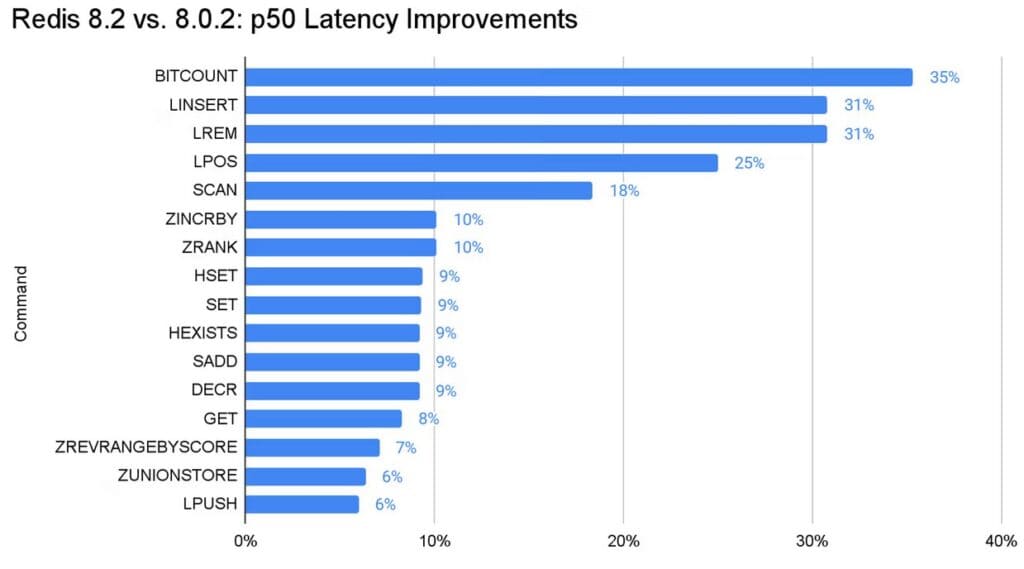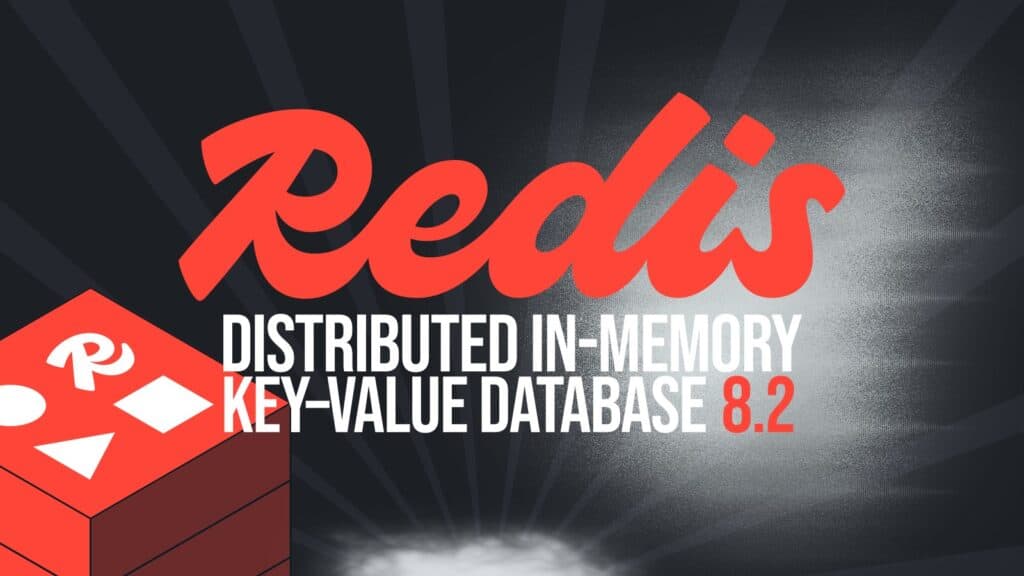After returning to the open source family in early May, Redis, a distributed in-memory key-value data store, officially rolled out version 8.2 a few days ago, building on the foundation set by Redis 8.0.
The headline figures are more than impressive: This update offers up to 35% faster command execution, 49% higher throughput—surpassing one million operations per second on a single instance—and memory savings of up to 67% in certain scenarios.
Moreover, Redis 8.2 optimizes over 70 commands, with notable standouts like BITCOUNT running 35% faster and list operations (LINSERT, LREM, LPOS) seeing latency drops of more than 25%. Thanks to enhancements in I/O threading, Redis 8.2 can handle nearly half again as many operations per second compared to 8.0 for workloads with a mix of reads and writes.

On the memory side, Redis now employs a unified key-value object structure that tightly packs keys, values, and optional TTL data into a single memory allocation. This architectural shift not only reduces pointer overhead but also slashes memory usage for short string keys by 25–37%.
JSON storage gets even more dramatic improvements: for numeric values, memory consumption drops by as much as two-thirds, which could have a big impact for data-heavy use cases like financial records or analytics workloads.
Apart from that, Redis Streams, which are widely used for event-driven architectures, now come with two new commands—XACKDEL and XDELEX—that make it far easier to manage multi-consumer groups without elaborate application logic.
Lastly, bitmap users also get an upgrade with four new logical operators for the BITOP command—DIFF, DIFF1, ANDOR, and ONE—allowing more complex set operations in a single step. As our readers who bet on Radis know, these could prove especially useful in scenarios like gaming, ad targeting, or tracking user membership in various categories.
Redis 8.2 remains fully compatible with popular client libraries, including Jedis, Lettuce, go-redis, node-redis, NRedisStack, and redis-py. The same goes for Redis OM, RedisVL for AI workflows, and tools like Redis Insight and the Redis VS Code extension.
For more information, see the announcement. Redis 8.2 is available now via Docker Hub (Alpine or Debian images), Snap, Homebrew, RPM, and APT.
Image credits: Redis
